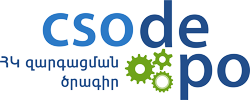Քեյտլին Ֆերթալի, Ինչպես գրել դրամաշնորհային առաջարկ (Անգլերեն)
https://www.facebook.com/events/1548140672155654/?active_tab=posts
-
clock17 May at 18:00
-
pin
Writing research proposals is one of the most daunting, demanding, and even anxiety-producing steps in the research process. This much is true for professors, students, and professionals alike – indeed, for anyone seeking funding for fieldwork, be it in villages of Armenia, a war zone in Syria, or an archive in New York City. Yet, despite its inevitability, the proposal writing process is rarely taught. Like fieldwork, the writing of a research proposal is treated as Darwinian learn-by-doing rite of passage—those who are successful get to pursue their research and their careers, and those who are not are never seen again. The purpose of this seminar is to help unpack the myth of the research proposal and to help researchers wade through the tangled issues related to the political economy of funding and grants, research design, and the complicated processes of framing, designing and conducting a researchable project.
This talk will discuss the process of research proposal writing in three broad strokes. First, Kaitlin will discuss the planning and organizing phase. She will present a rudimentary calendar of grant opportunities to which the audience can contribute. You can never start planning too soon! She will also discuss the elements of a strong proposal including what makes for answerable research questions, compelling research justification, and a coherent research design. Finally, she will make some suggestions and recommendations regarding the writing structure and outline of a research proposal as well as how to approach the writing process itself.
Kaitlin Fertaly is a PhD candidate at the University of Colorado Boulder in the Geography Department. She is conducting research in Yerevan and Sisian on economic development and changing domestic practices and spaces. Her research interests include the processes of neoliberalism, feminist geography, cultural geography, and post-socialist transformations. She is a recipient of the Fulbright IIE Research Fellowship and the National Science Foundation Doctoral Dissertation Research Improvement Award.
